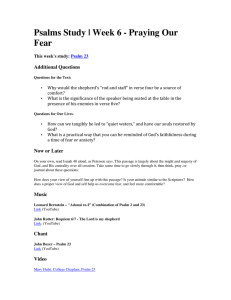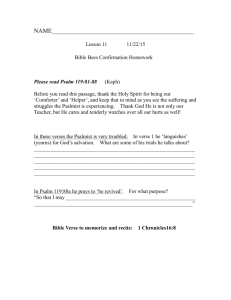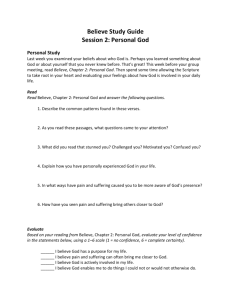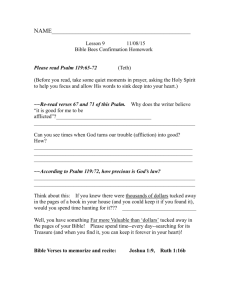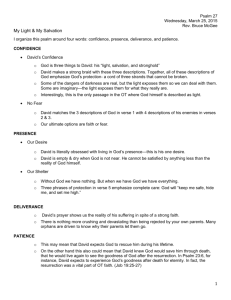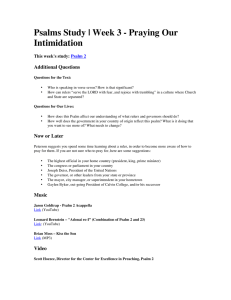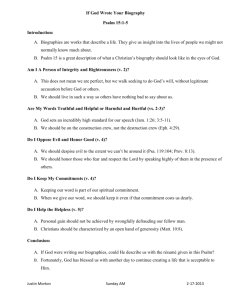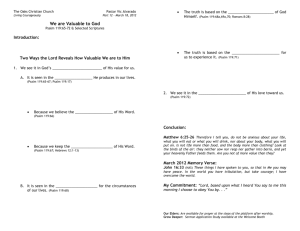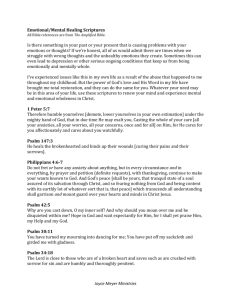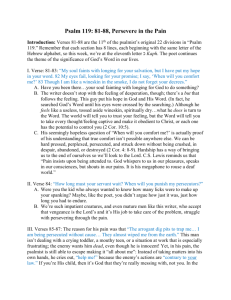Sermon Notes - Poplar Springs Baptist Church
advertisement
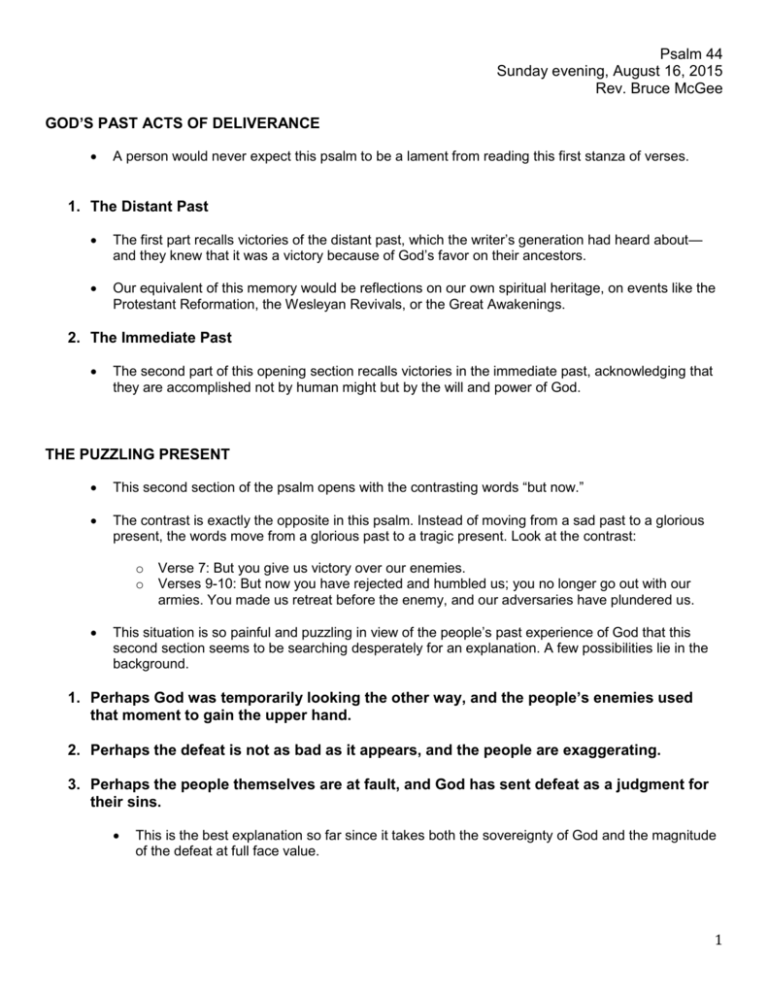
Psalm 44 Sunday evening, August 16, 2015 Rev. Bruce McGee GOD’S PAST ACTS OF DELIVERANCE A person would never expect this psalm to be a lament from reading this first stanza of verses. 1. The Distant Past The first part recalls victories of the distant past, which the writer’s generation had heard about— and they knew that it was a victory because of God’s favor on their ancestors. Our equivalent of this memory would be reflections on our own spiritual heritage, on events like the Protestant Reformation, the Wesleyan Revivals, or the Great Awakenings. 2. The Immediate Past The second part of this opening section recalls victories in the immediate past, acknowledging that they are accomplished not by human might but by the will and power of God. THE PUZZLING PRESENT This second section of the psalm opens with the contrasting words “but now.” The contrast is exactly the opposite in this psalm. Instead of moving from a sad past to a glorious present, the words move from a glorious past to a tragic present. Look at the contrast: o o Verse 7: But you give us victory over our enemies. Verses 9-10: But now you have rejected and humbled us; you no longer go out with our armies. You made us retreat before the enemy, and our adversaries have plundered us. This situation is so painful and puzzling in view of the people’s past experience of God that this second section seems to be searching desperately for an explanation. A few possibilities lie in the background. 1. Perhaps God was temporarily looking the other way, and the people’s enemies used that moment to gain the upper hand. 2. Perhaps the defeat is not as bad as it appears, and the people are exaggerating. 3. Perhaps the people themselves are at fault, and God has sent defeat as a judgment for their sins. This is the best explanation so far since it takes both the sovereignty of God and the magnitude of the defeat at full face value. 1 PRAYER FOR DELIVERANCE IN THE FUTURE Does God seem to be asleep? The psalmist seems to be saying, “Forget whether he really sleeps or not or what he may or may not be sleeping for—pray to him. Get practical and rouse him, if you must with you prayers.” One of the early commentators expressed the psalm’s thought like this: “You helped us in the past God. You must help us now. But you are not helping us even though we have done nothing to prohibit you helping us. So help us.” The summary of the psalm is as simple as that. There are a couple of clues in the psalm that help us for starters to begin to understand why there is this suffering and God is silent. o First, there is the phrase “for your sake” in verse 22—same verse that Paul quotes in Romans. o Secondly, there is the last phrase “your unfailing love” in verse 26. That is a very important ending. 2
